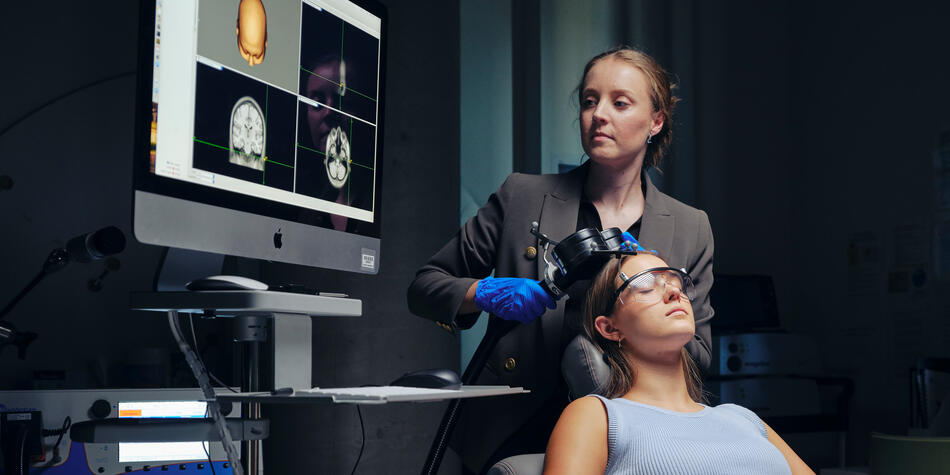With a focus on motor imagery, Dr Pamela Barhoun’s PhD research at Deakin’s Cognitive Neuroscience Unit delves into the brain’s role in movement. Her work aims to develop targeted interventions to enhance motor skills and address movement disorders in both children and adults.
What was your PhD research project about?
My PhD was within the Cognitive Neuroscience Unit at Deakin. I looked at understanding which parts of the brain are involved when we imagine movement. This is known as motor imagery. We find that a lot of people, particularly those with movement disorders, struggled to imagine movement. Through research we are trying to understand which parts of the brain are used when we imagine movement. Hopefully in the future we can target those areas and develop interventions to help people move better.
It's an extremely supportive and engaging learning environment at Deakin. You feel like you’re not just a student, but more like you’re doing an internship and you’re learning from your colleagues.
Dr Pamela Barhoun
Deakin PhD candidate
What motivated you to pursue research in your chosen area?
I completed a Bachelor of Health Sciences and a Graduate Diploma of Psychology at Deakin. Throughout my studies I was always interested in neuroscience and the brain, particularly trying to understand why people have certain disorders and how we can develop early interventions.
What future aspirations do you have for your research?
I am currently working as a project manager for a grant-funded project at Deakin that looks at understanding the motor development of the brain in children. Specifically, I work with children who have developmental coordination disorder, a movement disorder or Attention Deficit Hyperactivity Disorder (ADHD). This involves bringing children into the Deakin laboratories where we do motor assessments, cognitive assessments and put them through MRI scanners to look at their brain function.
It’s nice to feel like you're contributing to something that will hopefully go a long way to helping children with these disorders. In the future, I would really like to develop interventions that we can use in clinical settings that will, one day, help not only children but adults as well.
What has been the best aspect of doing a PhD at Deakin?
We have an amazing, diverse range of researchers and fields of research, so I knew that it was the right place for me to do my PhD. They are very hands-on at Deakin and they really care about the student experience. You feel like you’re not just a student, but more like you’re doing an internship and you’re learning from your colleagues. The whole way through I felt very supported and engaged and it was a great experience.
What are your future career ambitions?
I recently submitted my thesis which is exciting! I am passionate about research, so I have always aspired to stay at a university and continue in academia. I am also very passionate about teaching, which I did a lot of during my PhD. My goal is to combine teaching and research in my career. Since submitting my PhD, I have been employed as a Lecturer in the School of Psychology at Deakin, teaching research methods and cognitive psychology, while continuing to pursue my research in disorders affecting movement.

